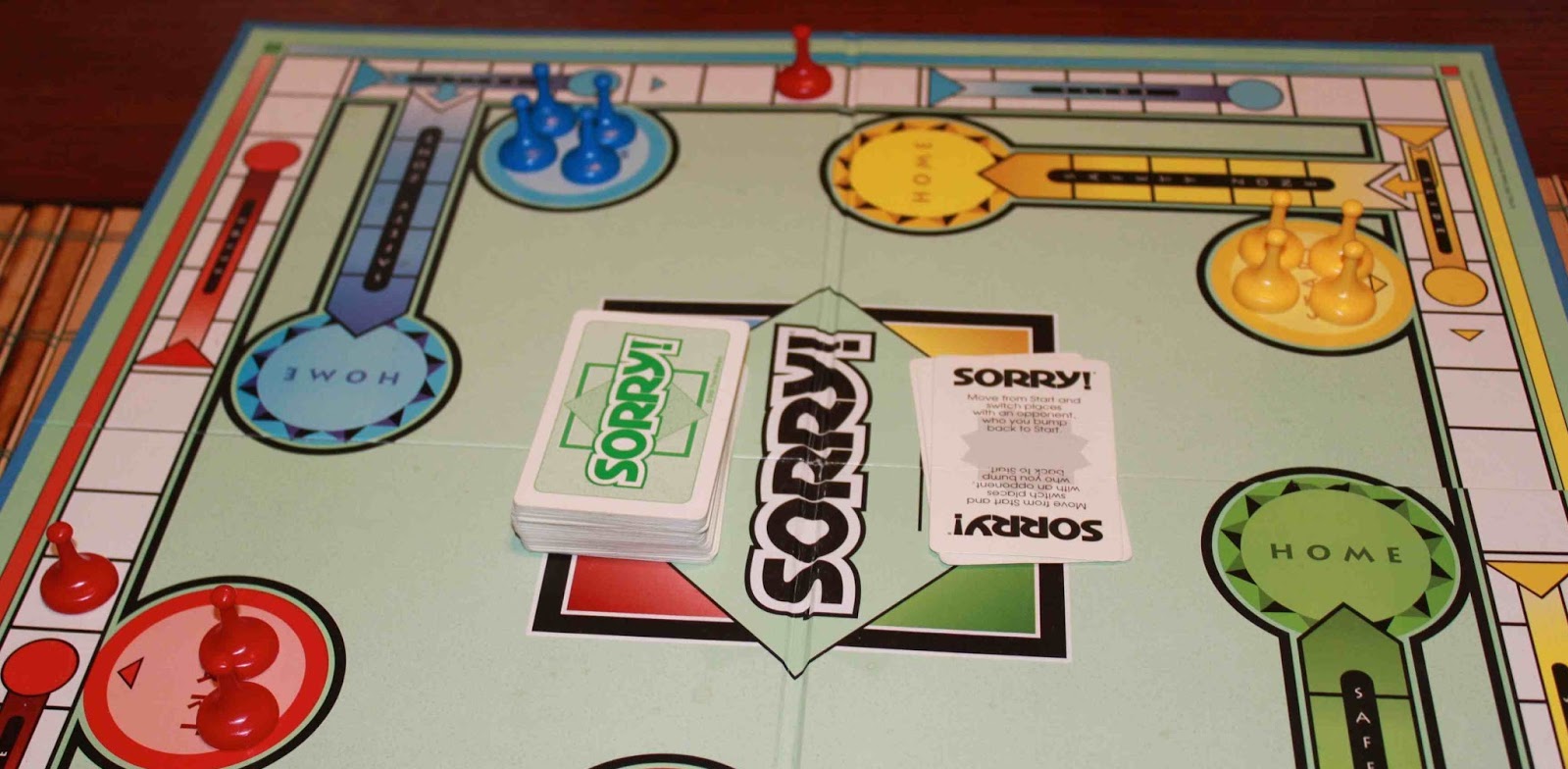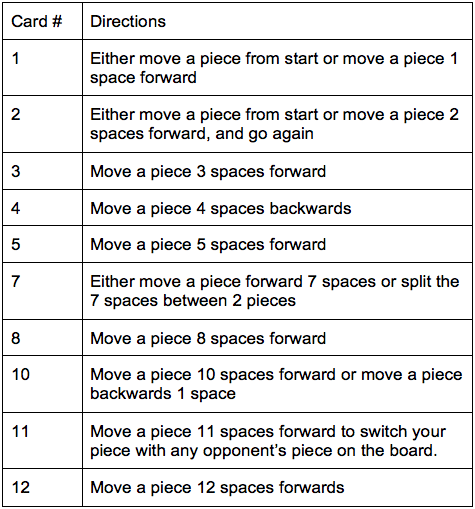
Prompt Images
Sorry to burst your naive echo-chamber bubble, but Sorry is not a game of luck. Maybe you wrote off Sorry because you wanted to play a game where you could dominate and where your fate wasn’t left up to chance, but if that’s the case, move backwards four squares.
I know you don’t believe me, because you think the game is all about which cards you draw, which then dictate how quickly you can get your pieces around and back into HOME. But that’s because you are thinking too simply, which also explains why you haven’t figured out the techniques of Sorry, nor how to master it. So while I risk exposing the secrets of expert players and forever being banished from backroom Sorry games (I like living in a pretend world where that exists), here is the truth about one of the greatest board games ever:
Sorry only looks like a simple game of luck, but it is actually has many skill-related factors.
By my expert approximations, Sorry is 33 percent luck, 33 percent reasoning, and 33 percent diplomacy. (The last 1 percent is about what color you choose because everyone knows blue is superior and gives you the best chance to win.). I’m sure Nate Silver or Billy Beane could figure out the exact numbers, but you get the gist. Let’s go through each of the three (major) facets of the game:
LUCK:
This is the most obvious one, so we can breeze through it. Yes, if you never get 1s or 2s, you won’t get you pieces out of the start. A well timed 11 can completely change the board’s landscape. In the same way that Monopoly is somewhat dependent on the roll of the dice, Sorry, of course, is somewhat dependent on the cards you and your opponents pick. But just like in life (the thing, not the board game), luck favors the prepared. That is where the reasoning comes in!
REASONING:
When I talk about reasoning, I am mostly talking about the decision-making moves, a player makes during the game. Sometimes, you don’t have much of a choice. Moving one piece 12 spaces is a mostly straightforward direction. But how many card numbers offer only one, strict option?

As you can see, half the cards give you an option on how to move your players. That means you have agency to play a more offensive-minded, defensive-minded, or a moderate game. You’ll also see that there are no 6s or 9s, which is useful information when executing your Sorry agency. Keeping your pieces 6 or 9 spots away from HOME is not a great idea, but keeping them 6 or 9 spaces away from trouble is less risky. Those insights may not win you the game, but they help skew the odds in your favor.
(There is also a world where card counting can greatly increase your chances. Since there are a set number of each card in the deck, and the deck is not too big, card counting could give a player a MAJOR advantage, a la blackjack. And also like blackjack, it is frowned upon.)
How patient are you willing to be with a piece sitting by your start, so that you can use a 4 or a 10 (backwards 1 space!) to avoid the long journey around the board? How quickly do you want to blitz and get a piece or two through early, but turn everyone on to you as a threat? Is it worth it to knock a few opponents’ pieces off early, when they aren’t a threat?
Making logical, thoughtful decisions instead of impulsive, hasty ones can make a major difference in the outcome. But, just like luck, there is one other factor that you need to consider…
DIPLOMACY:
When I talk about Sorry diplomacy, I am talking about how you interact with your opponents, how their moves affect you and vice versa. This is where Sorry becomes an intense psychological exercise. Are you going to spread out the damage you inflict evenly amongst your three enemies? Will you fall into a detente with one of them? Might you become the target for the others because when you Sorry-ed the red piece, you Mutombo-ed it off the table, but also, and equally dastardly, you’ve been eating sour cream and onion chips and burping?
I don’t think it’s an exaggeration to suggest that every move you make has consequences on the three other sentient human beings at the table.
Another important diplomatic skill you MUST have in your toolbox is negotiation. When green has the choice between taking you out or hurting yellow, you must be ready to explain why the only choice is to go after yellow. How well do you know your opponents and how much can you manipulate them? What level of the Inception are you in? When everyone else is playing Sorry checkers, you want to be playing Sorry chess. The words you deploy are as important as the cards that you do!
The world of board games massively evolves every year, but Sorry remains a classic worth your time (and if played correctly, it may be upwards of an hour). Like Uno, Sorry deserves more credit for its complexities and need for skill. If you still don’t believe me, let’s play.



